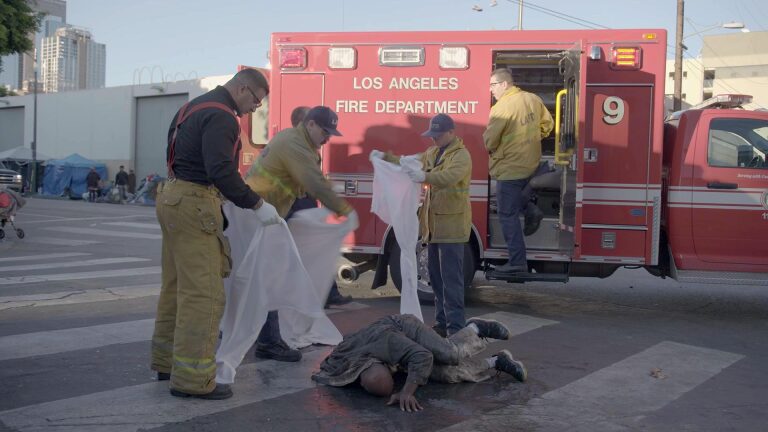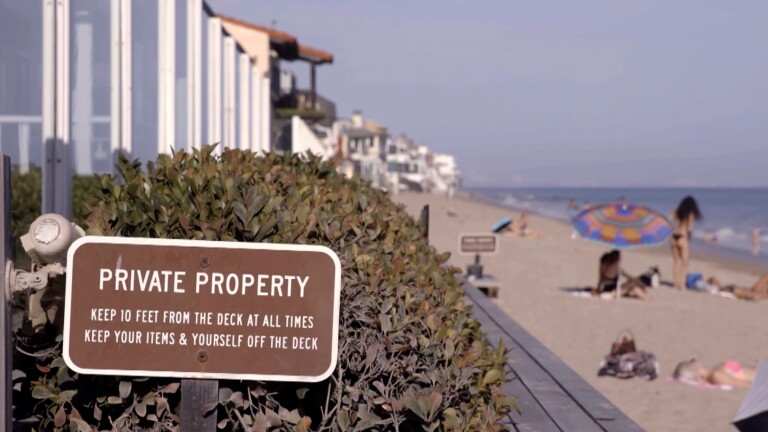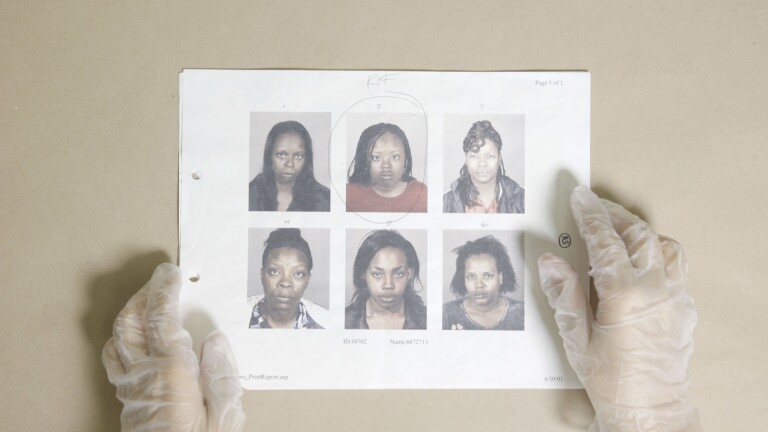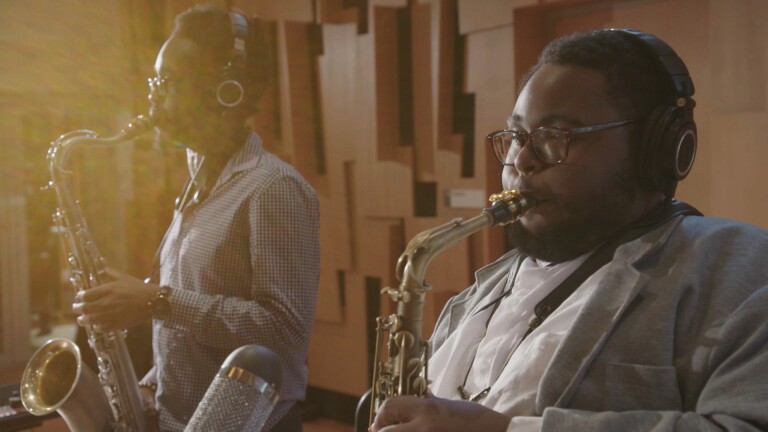
Small Town, Big Oil
Our investigation involves small town and a very, very big oil company. It involves anonymous threats, tens of millions of dollars, and an insider caught in the middle.
TRANSCRIPT
Doug Willmore/Former El Segundo City Manager: My dad always told me is you, you don't work on the things that are enjoyable. You work on the things that have to be done, and this to me, you couldn't just turn away because it looked to be unpleasant. You had to confront it, deal with it, and so that's what I did.
Vince Gonzales: Doug Willmore's story starts here - in El Segundo. The city is often called “Mayberry by the sea.” With its old fashioned Main Street, lined with flowers and American flags. There's even a Candy Cane Lane and an all-American high school that’s appeared in movies and on TV. But Doug says he soon found out this picture perfect city is also very much a company town.
Willmore: Boy if I'd known that this sort of tight influence was there, I wouldn't have considered taking this job.
Gonzales: El Segundo got its name when Chevron – then Standard Oil - built their second refinery here. Last year, El Segundo hired Doug to be its city manager. He beat out 85 other candidates and moved from Utah to take the job, going to work eliminating the city's ten million dollar deficit. After a few rounds of "attaboys," the mayor then asked Doug to look into another issue.
Eric Busch/Mayor of El Segundo: So I’d asked Doug to go investigate what Chevron contributed to the city as far as tax goes and compare that to other refineries throughout the state and other communities that have refineries.
Willmore: It was actually pretty shocking.
Gonzales: Doug says his research showed the Chevron refinery in El Segundo - the largest in the state - was paying the least in taxes.
Willmore: You could triple the taxes that the Chevron refinery in El Segundo is paying and get to the average of the other large refineries in the state. You could double their taxes and just get, they’d still be the lowest in the state. Again, this is the largest refinery in the state by volume, the Chevron refinery in El Segundo, is the largest by volume in the state.
Gonzales: According to Doug's analysis, the other major refineries in California pay, on average, about twenty-five million a year in total taxes. In El Segundo, his research showed Chevron pays only four to five million dollars. By Doug's estimates, the city should be getting as much as thirty-three million dollars a year from Chevron.
Willmore: It was certainly shocking to me when I found an inequity was that big.
Gonzales: What did the mayor and the councilmembers say to you?
Willmore: They all said we want this to be one of your goals for 2012.
Gonzales: To fix the situation?
Willmore: Yeah, to actually address the situation and go to Chevron and start to work on this issue.
Gonzales: All, Doug says, except for one councilmember - Carl Jacobson.
Willmore: He was the one person out of the five who said "I don’t want this to be one of your goals. And we shouldn’t' really address it." I mean just clear as day said, "No, it shouldn’t be one of your goals, and I don’t’ want you to talk to Chevron."
Gonzales: Jacobson's pushback was clear at a December city council meeting where Doug and the mayor discussed chevron paying more taxes.
Carl Jacobson/El Segundo City Council Member [at city council meeting] : So acreage I think it is a farce. It doesn’t ring true. I just can’t, can't believe it.
Gonzales: And Jacobson wasn’t alone. Chevron called Doug’s analysis way of base.
Rod Spackman/Chevron Governmental Affairs: We pay our fair share, and to suddenly come to us and say "you’re not" is a kind of a reconstruction of history.
Resident [at council meeting]: I simply couldn’t believe what I was hearing.
Gonzales: And a stream of community members at that December meeting seemed to agree.
Resident [at council meeting]: So this process stinks.
Resident [at council meeting]: It’s just a bunch of smoke and mirrors.
Resident [at council meeting]: Please take the time to reconsider this.
Willmore: It’s like I was trying to shut down the corner grocer. It was that strong. I'm thinking, here is a corporation making thirty billion dollars a year in profit, and they are being talked about like a lamb going to slaughter.
Resident [at council meeting]: We are talking not just Chevron as a business, this is our benefactor of nearly a century to this community.
Gonzales: That vocal resistance effectively killed Doug and the mayor’s plan to put a Chevron tax increase on the April ballot. Instead the city began direct negotiations with the company. As part of those talks, Doug says the city asked for just an extra five million dollars a year. Far less than what the ballot initiative would have required.
Willmore: And I think things died down a little bit amongst those really, some of the hostile supporters, at least it seemed hostile. But then I found an agreement and just on the first blush looking at it, I said to myself "uh-oh."
Gonzales: Discovered in the city’s storage unit was this eighteen-year-old document.
Willmore: It was an agreement between chevron and the city basically identified an audit that was done 18 years ago that showed that Chevron owed up to nine-point-five million dollars in back taxes that the city had written off for two hundred thousand dollars.
Gonzales: In 1992, MRC consultants, one of California’s top municipality audit firms, was hired by El Segundo. In their preliminary findings the auditors concluded Chevron hadn't paid all of its gas utility taxes. The city and Chevron both disagreed with the findings. In fact, the company claimed they were the ones owed money. In these emails, the auditor asks for "four more hours" to complete the audit. El Segundo refused and dismissed the team, eventually entering into this agreement, forgiving potentially eleven million dollars in Chevron taxes. Ultimately the city got two hundred thousand bucks from the company – money that went to pay the auditor. That auditor – who was supposed to be paid a percentage of any taxes collected-- was baffled at the city's decision not to go after Chevron, writing, " MRC has never encountered resistance from its client cities regarding the collection of such substantial and much needed tax revenues." But the agreement didn't stop there.
Willmore: The second thing they did, and it was sort of mind-blowing to me, was that it capped taxes they pay on their natural gas usage and in the future in perpetuity at a hundred fifty thousand dollars a year plus a small inflationary CPI, and all of those put together, I said, "This, this thing is not legal."
Gonzales: By some estimates, Chevron should have been paying up to three million dollars a year in gas tax. And who signed that deal? Then mayor Carl Jacobson, the current councilmember who criticized Doug’s report on Chevron.
Gonzales: Can you tell us what happened back in 1993?
Jacobson: I don’t' remember much back then. I've been in so many closed sessions for twenty-six, twenty years that I can't remember every one of them. It was not something that was high on the priority. It was just another negotiation.
Gonzales: But you signed off on the deal?
Jacobson: Yes.
Gonzales: Jacobson is running for his sixth city council term. Campaign records show he has received no contributions from Chevron, but he is a staunch Chevron supporter.
Gonzales: There are articles and people saying that some on the city council and yourself are too close to Chevron, that you are an ardent defender of Chevron.
Jacobson: I am an ardent defender of business.
Willmore: It's pro-Chevron and anti-business. The policies in that city that just support Chevron, they don’t support he rest of the business in the city. It's the other businesses subsidizing Chevron. That's anti-business.
Gonzales: Doug is not a lawyer. So in January, he gave the council and the city attorney a copy of the 1993 agreement and asked for a legal opinion. He wasn't around long enough to get an answer.
Willmore: Eleven days later I am notified that they are going to have this special hearing to terminate me. No reason.
Gonzales: Carl Jacobson was one of the three councilmembers who voted to fire Doug.
Jacobson: I can't say. It's a personnel issue.
Gonzales: What is the message coming out of city government?
Donald Cohen/Director, Cry Wolf Project: The message is that Chevron is the sheriff. They are in control. They ought to be ashamed of themselves and so should the members of the Council who voted to fire the city manager.
Gonzales: Donald Cohen is with the director of a public interest group, called the Cry Wolf Project.
Cohen: Firing somebody from a powerful position, an important position in the city speaks volumes about what Chevron and those that support Chevron are willing to do. Why would you want to go up against that?
Spackman: Anybody that would suggest that simply isn’t aware of both the character of how we’ve always conducted our business and the fact that we would never, ever try and exert that kind of influence in any kind of process.
Gonzales: This city was founded more than a a hundred years ago by Standard Oil, now Chevron, and there is a real reluctance here to speak out against the company. Several citizens and city leaders told us privately they favor making Chevron pay more in taxes, but most would not go on camera. One man who did chased us down and begged us not to air the interview because he worried his daughter would be retaliated against at school if it was know he criticized Chevron.
Gonzales: But before you dismiss this as small-town paranoia, listen to what happened to Doug just after that December city council meeting.
Willmore: I was actually outside my, my home. I walked underneath into the garage it had parking, underground parking and there was a note on my car that basically said, "This is a Chevron town. You don’t' understand. Get out of here." But here was the chilling thing - it said, "It's a good thing your children don't go to school here because if they did, they wouldn’t make it through the day." Who does that?"
Gonzales: Police never found out. But Chevron denies any involvement and called the note reprehensible.
Cohen: I dont' see Chevron out there overtly threatening people overtly. I don’t think that’s necessary. I think the exercise of power is often a very subtle thing. I would guess that Chevron has given charitable corporations to every nonprofit, every little league and every, you know, local institution here, and that's a good thing, but it’s everyone is afraid of Chevron, I'm sure of that.
Gonzales: Afraid perhaps to stop chevron’s five hundred thousand dollars in contributions each year for things like baseball scoreboards, fireworks on July 4th, and a Santa suit for Christmas on Candy Cane Lane.
Brad Gage: Five hundred thousand dollars of contributions is wonderful, but how much more, how many more little league uniforms could the city buy, how many more things for a football field could a city deliver if Chevron is paying five million dollars or more additional taxes each year if that's what they owe.
Gonzales: Or, in a city dealing with big deficits, how many services and salaries might not have been cut? Given the city’s history, some are asking, does the political will exist to revisit the deals of the past?
Jacobson: I cant' go back twenty years, eighteen years and say what was right or wrong back then. I'm sorry, I don’t' remember that well.
Bill Fisher/City Council Member: I really don't want to comment.
Busch: It's water under the bridge. We need to move on.
Cohen: If they believe those deals are fair, then they should say that to the citizens of El Segundo.
Gonzales: El Segundo council members and employees all told us they were ordered not to talk about the Chevron situation because of ongoing negotiations with the company, and that everyone is quote “focused on moving forward.”
Busch: As we move forward.
Fisher: So we want to move forward
Busch: We will move forward.
Fisher: Let’s move forward.
Busch: What we need to do now is focus on moving forward.
Fisher: It’s productive right now to go forward.
Gonzales: And while they may be moving forward, Doug Willmore isn't. He's filed a whistleblower lawsuit.
Gonzales: Doug, do you think if you had not brought this issue up, you'd still be the city manager of el Segundo?
Willmore: Of course. Of course
Gonzales: While some in El Segundo would dispute that, one thing is clear.
Jacobson: This is an old town. Very old town. And a lot of people here know where it comes from.
Gonzales: Making El Segundo one powerful company town. For SoCal Connected, I’m Vince Gonzales.























